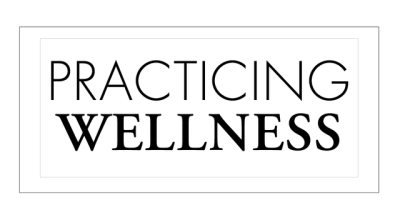
“Doctors make the worst patients,” or so the saying goes. It’s understandable — working in a profession where other human beings put their lives in your hands on a daily basis demands not only a high level of competence, but awareness of that competence. Put another way, I want my doctor to believe he’s God’s gift to medicine, my airline pilot to believe he’s Val Kilmer from Top Gun, and my lawyer to believe she’s the real-world incarnation of Annalise Keating.
I suspect that most professionals have some sense (whether consciously or subconsciously) that this is what their consumers want, which can lead to their professions developing supercilious reputations over time. Or perhaps my causation is backwards and the most successful are inherently blessed with excess confidence. Regardless, if you truly believe you’re the best and market your services that way, it’s uncomfortable to accept that you may need help from another person with the same credentials. Unless, of course, you’re a lawyer, in which case humility replaces hubris when it comes to allowing someone else to represent you — something about In propria persona (or is it gratias lectio?)
Back in 2019, I unfortunately found myself on the hubris side of the spectrum. I knew that February that something was wrong with my mental health and by September, I finally asked a trusted colleague for referrals so I could begin seeing a therapist. Naturally, I rejected every option and continued to allow depression to impact my work and home life. When the search restarted in December 2020, my list of requirements for the ideal therapist was so long it would have made 13-year-old boys on the internet exclaim, “Beggars can’t be choosers!”
After accepting that “I am the best therapist” and “There is someone out there who can help me” are not mutually exclusive statements, I was able to start searching earnestly and logically. To my bitter disappointment, my search did not become easier.
Now is a good time to interject one very important point: Attorneys looking for a good therapist have a much simpler process than the one I described. Simply call the State Bar of Michigan’s confidential Lawyers and Judges Assistance Program hotline at (800) 996-5522 and let us do the work for you. By making this call, I can connect you with a licensed mental health professional who accepts your insurance (or is willing to discount their services for private pay clients) and has experience addressing the unique stressors of the legal profession.
If you absolutely insist on doing things the hard way like I did, the following might help shed some light on the various degrees, credentials, and accreditations you may come across.
Starting with doctoral-level psychologists, the two most common degrees conferred are the Ph.D. and the PsyD. Though it may not be advertised, practicing therapists with either of these two degrees should hold a licensed psychologist (LP) credential granted by the Michigan Department of Licensing and Regulatory Affairs (LARA). The difference between the two is a matter of educational focus: Ph.D. programs generally are geared more towards research while PsyD curriculums are offered with practice in mind. Doctoral-level psychologists also have access to and expertise in most psychological evaluation tools.
There also exist master’s-level psychologists who practice under the supervision of doctoral-level clinicians — and pay handsomely for that privilege — and hold a limited license psychologist (LLP) credential. The American Psychological Association is the top accreditation body for institutions offering advanced psychology degrees.
Holders of master’s of social work (MSW) degrees will often provide therapy services and are also skilled at advocacy and connecting clients to various community resources. This is the most common of Michigan’s mental health degrees and practitioners may use MSW or LCSW (for licensed clinical social worker) behind their names. Their diplomas should bear the name of an institution accredited by the Council on Social Work Education.
LMFT refers to a licensed marriage and family therapist, and while every licensed mental health professional can facilitate family therapy, LMFTs have a more specialized education. The top MFT programs are accredited by the Commission on Accreditation for Marriage and Family Therapy Education.
Rounding out the list of master’s-level therapy credentials is the licensed professional counselor (LPC). Counselors may administer objective evaluations (though they cannot ethically administer all that a Ph.D.-level psychologist may) and have an education deeply rooted in both theory and skill-building. The highest level of accreditation for a counseling program is given by the Council for Accreditation of Counseling and Related Educational Programs (CACREP).
Notably, none of the aforementioned mental health professionals may prescribe medication. Psychiatrists are physicians who have completed a residency in psychiatry and therefore have prescription privileges in the state of Michigan. An astute therapist may refer you to a psychiatrist in order to supplement the treatment they are providing. Research indicates that a combination of therapy and medication is more effective than either form of treatment on its own.1
The process of finding the appropriate therapist can feel daunting. Ideally, the hardest part would be accepting that outside help is necessary but based on the dozen or so acronyms I’ve mentioned above, that is not always the case. If you’ve made the difficult decision to improve your well-being by engaging in mental health services, I urge you to call the confidential LJAP hotline and let a licensed therapist find you a licensed therapist.